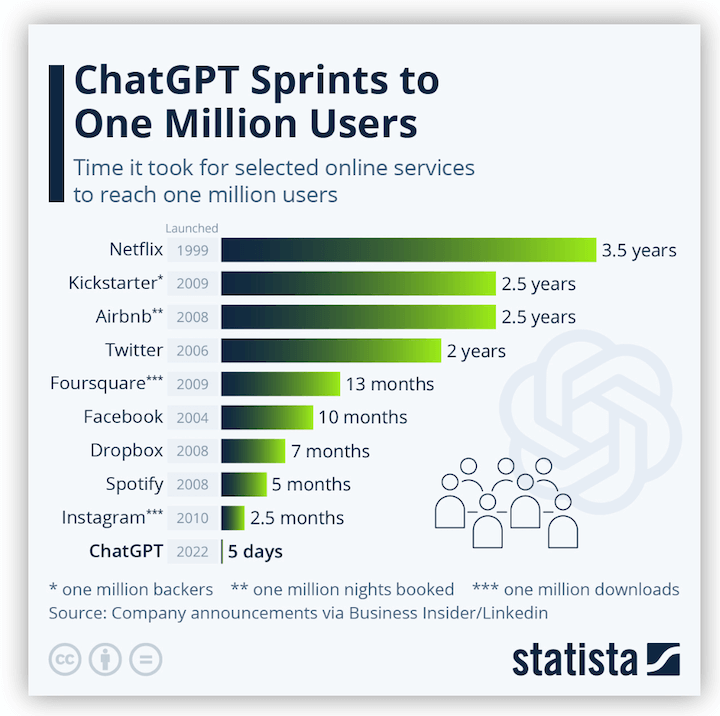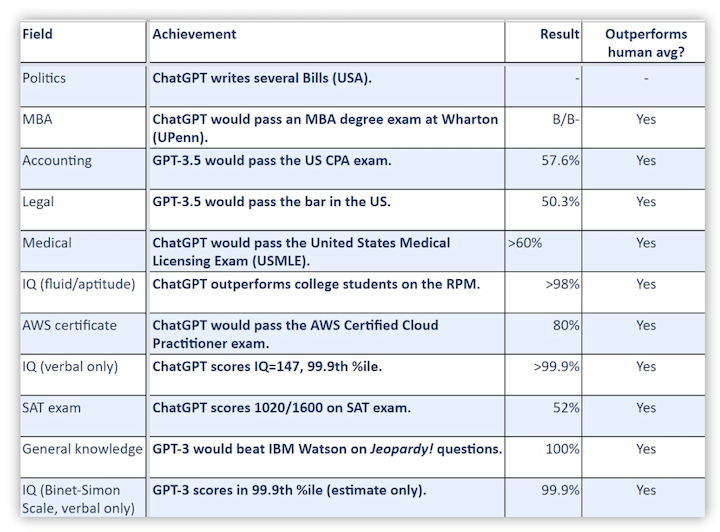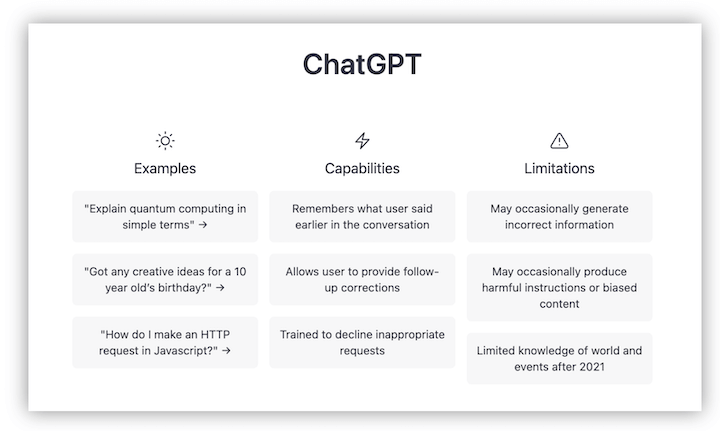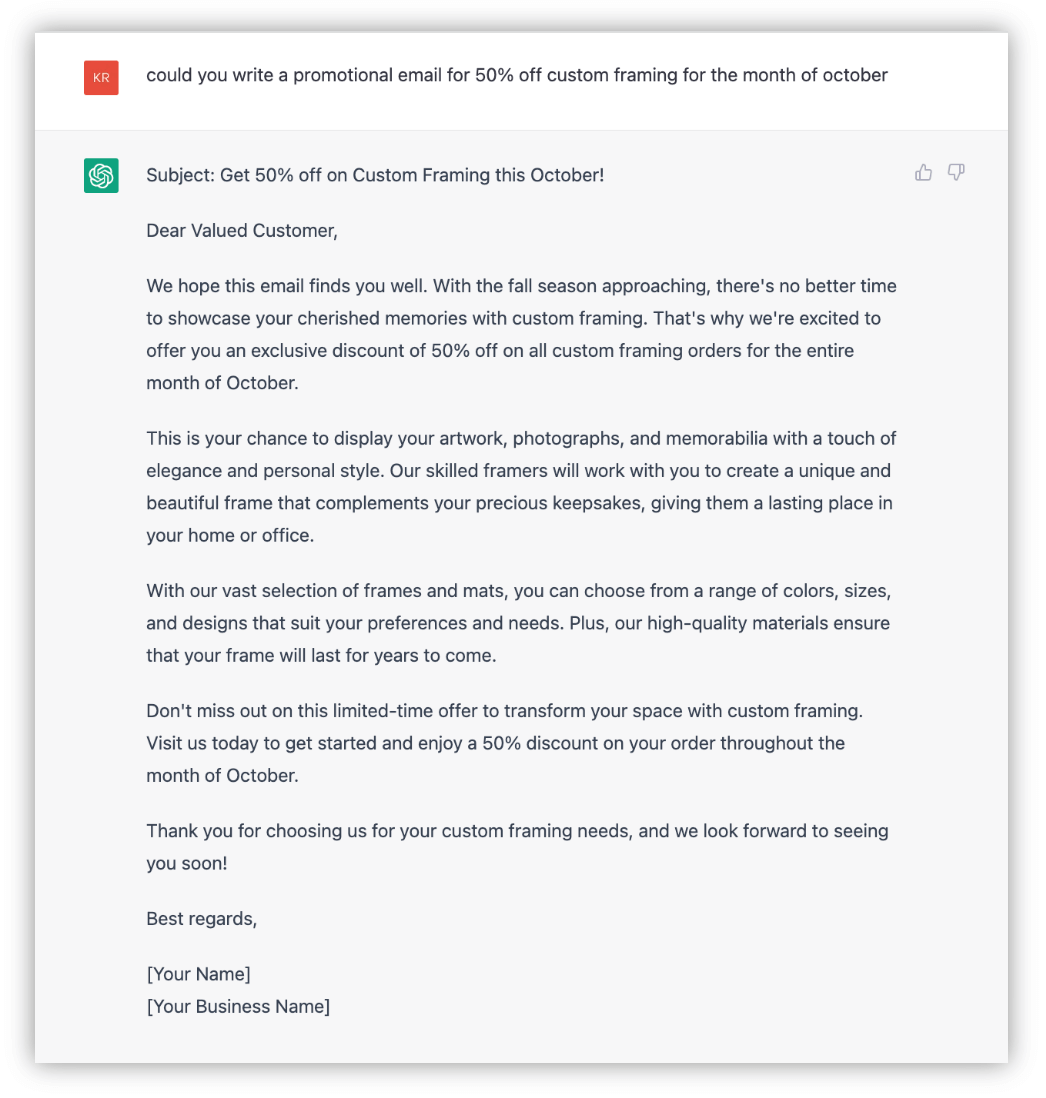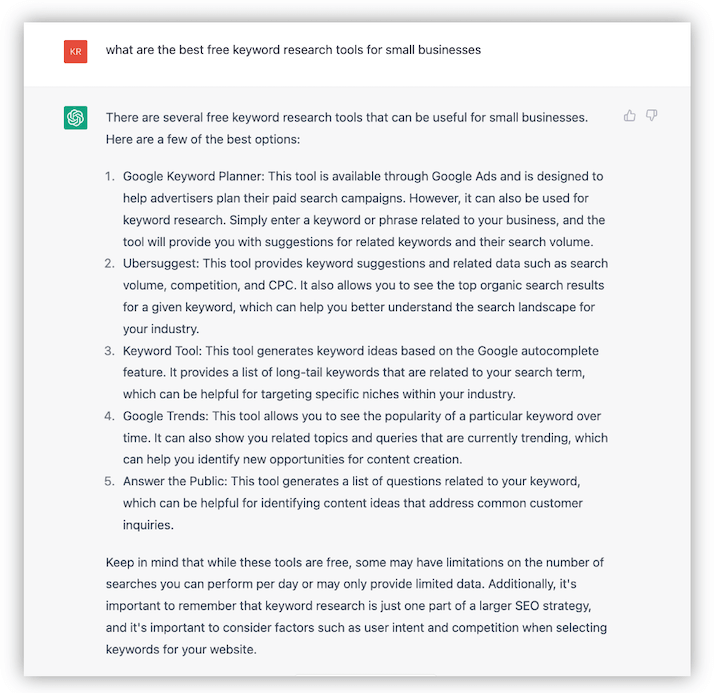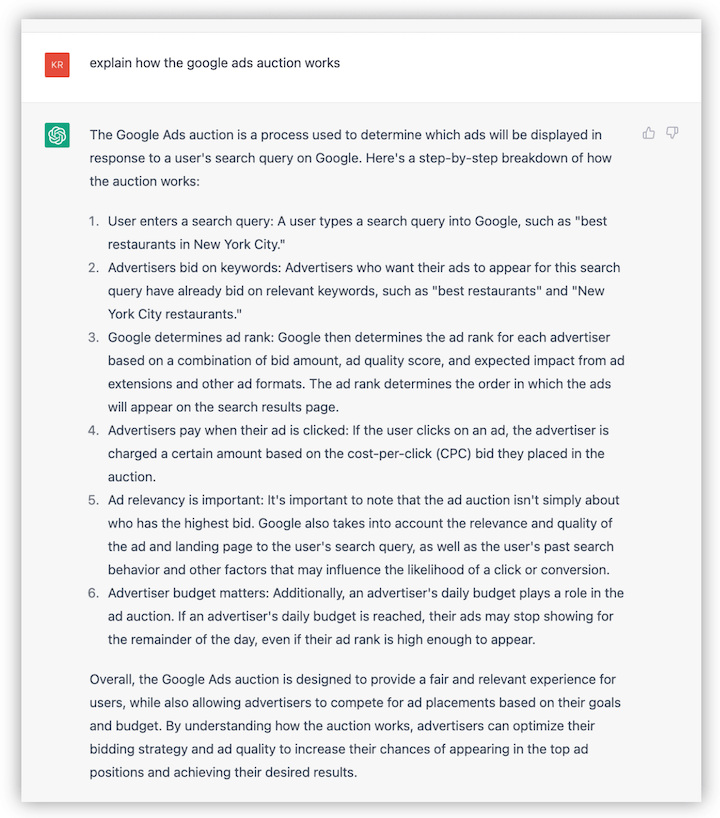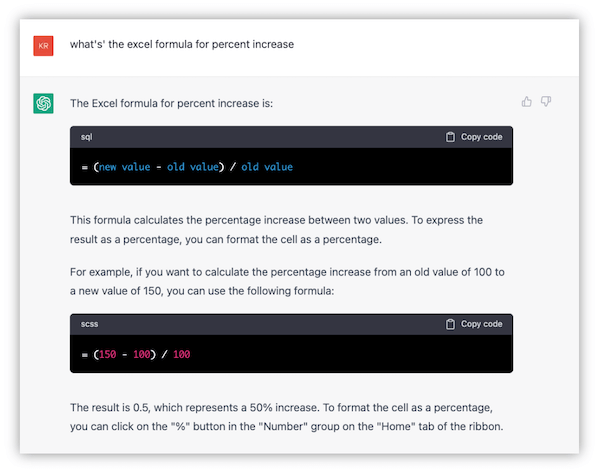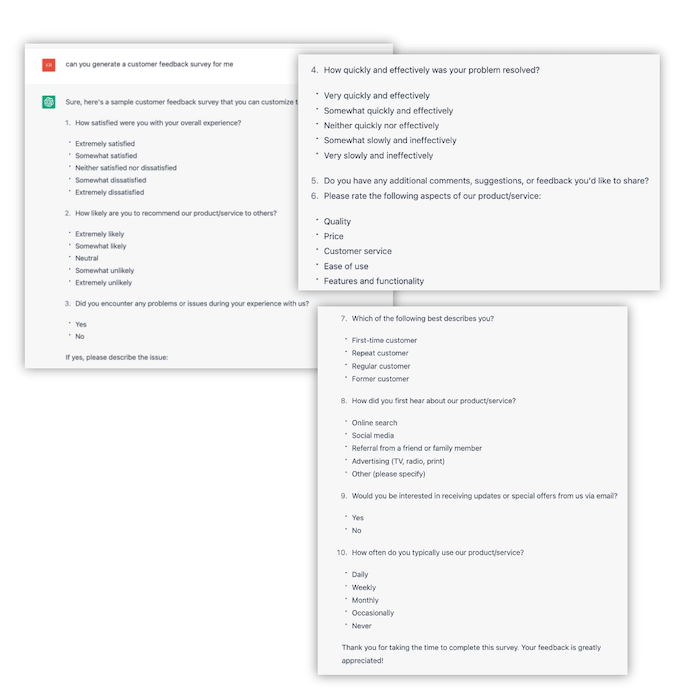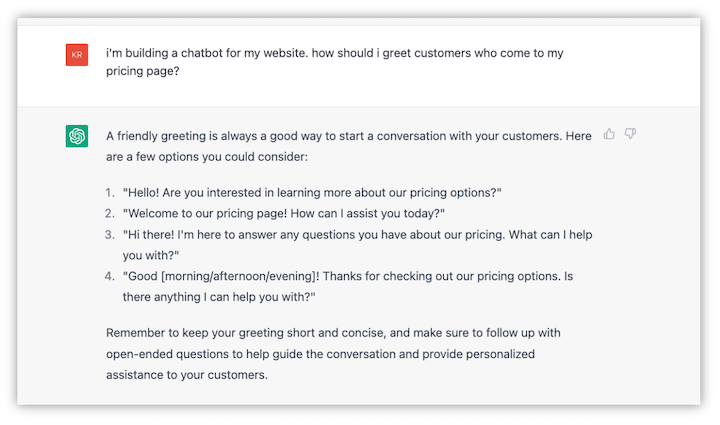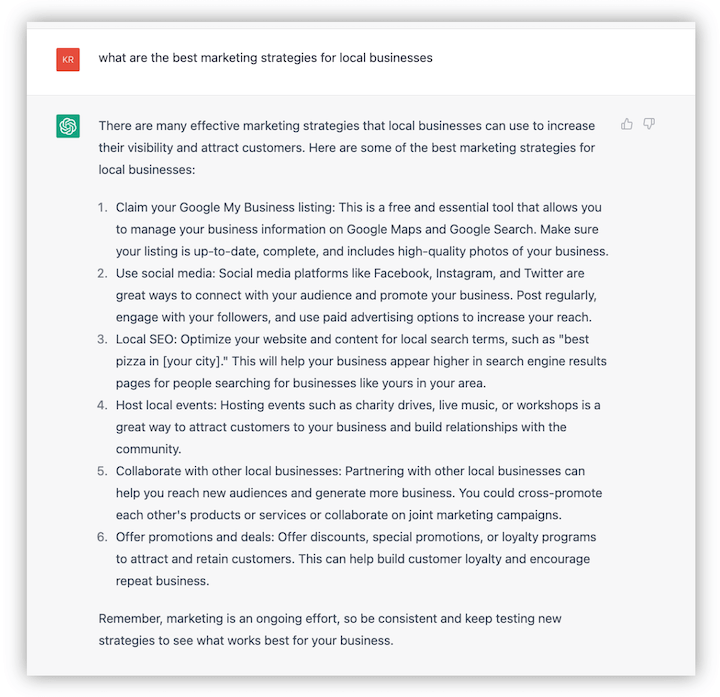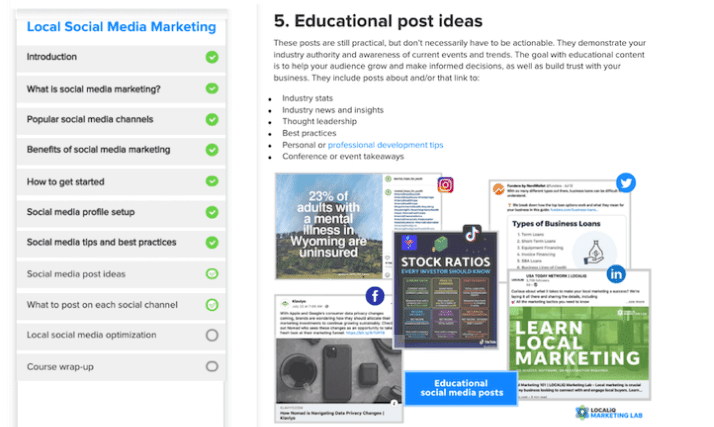WordStream: ChatGPT for Small Business Marketing
Netflix took 3.5 years. Facebook took 10 months. Instagram blew us away with 2.5 months.
And then came ChatGPT.
Launched in November 2022, it took just five days for this piece of technology to reach one million users.
What is ChatGPT?
ChatGPT is a free informational resource (with encyclopedic knowledge, like Google or Wikipedia—but different, which we'll get to shortly) that comes in the form of an artificial intelligence (AI) chatbot. So while you obtain information from Google by typing a search into a box and getting pages of results, you obtain information from ChatGPT by participating in a dialogue. You ask questions and it spits out answers based on your input.
It's basically just a really advanced chatbot. According to its creator Open AI, ChatGPT can "answer follow-up questions, admit its mistakes, challenge incorrect premises, and reject inappropriate requests."
And according to Life Architect, it can do a whole lot more…like pass the bar exam, write bills, and get an MBA.
How does ChatGPT work?
While tools like Google and Siri source information from the web, ChatGPT has its own "brain." How? As a large language model technology, it amasses large amounts of text data from the internet: books, articles, websites, blog posts, and more.
And the "GPT" stands for generative pre-training transformer, meaning it is trained on these large amounts of text data and uses the GPT-3 algorithm (called a transformer algorithm) to generate text similar to human conversation.
As you can see, with so much data, GPT-3 soars past its predecessors in terms of learning parameter count.
What is ChatGPT used for?
Since language and communication is used for, well, everything, ChatGPT is also proving to be useful for, well, everything. Some of ChatGPT's many capabilities include:
- Write code, articles, marketing copy, stories, poems, emails, essays
- Generate ideas and examples, multiple choice questions
- Recommend products, services, movies, a
- Explain complicated topics in layman's terms
- Analyze: sentiment and tone based on punctuation, words, and phrases
- Translate text in 95 different languages
- Find data sets and job openings
- More: the list is ever-growing
Given the above mere starter list, the implications are pretty overwhelming for any one industry. But of course, the one we're concerned with is that of digital advertising.
Limitations of ChatGPT
You knew this was coming. ChatGPT is not a replacement for, well, anything: It's not a marketing consultant, doctor, accountant, lawyer, plumber, etc. While it's an advanced technology, it's in its early stages, and like any computer, AI tool, or machine learning technology, it does not come with a 100% guarantee of information accuracy.
It is just a computer that can aggregate and summarize data, but other than what you tell it, it does not have the full context of your life, your business, your health, or your house that it would need to provide 100% reliable and fully relevant answers.
The tool itself says it:
- May occasionally generate incorrect information
- May occasionally produce harmful instructions or biased content
- Limited knowledge of world and events after 2021
That being said, it's important to be as specific as possible with your prompts and then use the responses as starting points only—to iterate on, look into deeper, and explore further.
You'll even notice that when ChatGPT gives you answers. It will say things like "While X tool is a helpful resource for Y, it's important to note that it's just one of many tools" and so on and so forth.
The use of AI in marketing—even for small businesses—is nothing new. If you've ever run a dynamic search ad campaign in Google Ads, asked a question via Google Analytics Intelligence, or used an AI content generator to write marketing copy, then you've experienced it yourself! Let's review some of the easiest ways to use ChatGPT for marketing:
You can use ChatGPT to help you with creating copy for any of your marketing collateral: Emails, blog posts, product descriptions, ad copy, headlines, website copy, social media captions, and more. Ask it to:
- Generate the content
- Modify existing content for a particular tone—like to make it more exiting for a particular persona, or to make it more negatively charged.
- Improve existing content for a goal (SEO, for example).
Of course, an entire blog post is a bit of a stretch. You may instead want to ask for an outline.
Prompt: Write a promotional email for 50% off custom framing for the month of October.
Here's a good example of using the output as a starting point only. This is far too much text for a promotional email.
Given the ol' disclaimer I mentioned above, here are some additional (and call me biased, but reliable) resources we have to help you with generating great marketing copy:
- Email copywriting tips
- Free guide to writing exceptional text ad copy
- Headline examples
- How to write a press release
- Instagram captions
- How to write a blog post
But you can also use it to get recommendations for tools. After all, there's a vast sea of "top ten" lists for just about any tool out there on the web. For example, ask about the best keyword research tools.
The answer spits out a similar list to our roundup of the best free keyword research tools:
Prompt: What are the best free keyword research tools for small businesses?
3. Content ideation
There are several ways to use ChatGPT to get ideas for your blog posts, guides, whitepapers, and ebooks. You can ask it for post ideas based on topics or existing content, use it to perform research on a topic, curate the top articles on a topic, or have it simplify a complex concept for you so you can simplify it for your readers.
Prompt: Explain how the Google Ads auction works
4. Learn shortcuts and formulas
While you shouldn't leave it to ChatGPT to do your reporting and analytics (we'll get to that shortly), one way it can help you is by teaching you shortcuts that can help you with data processing and analysis. For example, you can ask it for spreadsheet formulas, regular expressions, and other strings that are evergreen.
Prompt: What's the excel formula for percent increase?
5. Generate customer surveys
Your target audience is, well, a moving target. While you should do your own thorough research to find your target audience, you could use Chat GPT to help you generate a survey or poll to continue getting to know your audience and customers and collecting customer feedback.
Prompt: Generate a customer feedback survey.
6. Get chatbot ideas
Adding chat to your website is a great way to generate leads, engage customers, and gather feedback. Use Chat GPT to get ideas for prompts and answers for your own!
Prompt: I'm building a chatbot for my website. How should I greet customers who come to my pricing page?
6 ways NOT to use ChatGPT for marketing
As you can see from the suggestions above, it's best to use ChatGPT for marketing tactics that involve content and copy. For marketing strategy, on the other hand, your best bet is to stick with tried and true resources such as a marketing partner or professional—which you could even supplement with Google research. As mentioned above, ChatGPT's database has limited knowledge past 2021, while Google will have more real-time information.
That being said, here are some areas where you should not look to ChatGPT for help with your marketing.
Looking for the best ways to promote your business? You may be tempted to ask ChatGPT but ultimately, the best marketing strategies for your business are going to depend on your unique goals and challenges as well as the resources you have.
Prompt: What are the best marketing strategies for local businesses?
For the prompt above, ChatGPT recommends claiming your "Google My Business" listing—which is out of date since it is now called Google Business Profile. Social media is a good marketing strategy but there isn't anything in the response that discusses how to use social media for local marketing specifically.
2. Don't let Chat GPT organize your Google Ads account structure
3. Do not use it for keyword research
4. Don't use ChatGPT for web development
5. Don't use it for reporting & analytics
6. Do not use Chat GPT to run a competitor analysis
Stick with content & copy when using ChatGPT for marketing
Remember, while it's a source of information with a fun interface, ChatGPT is still in its early stages and has more than its fair share of drawbacks, limitations, and risks. Information accuracy is a big pain point, not to mention privacy. ll that being said, it's best to stick with content and copy tasks, and even then, the output should be used as a starting point only.
Source: WordStream
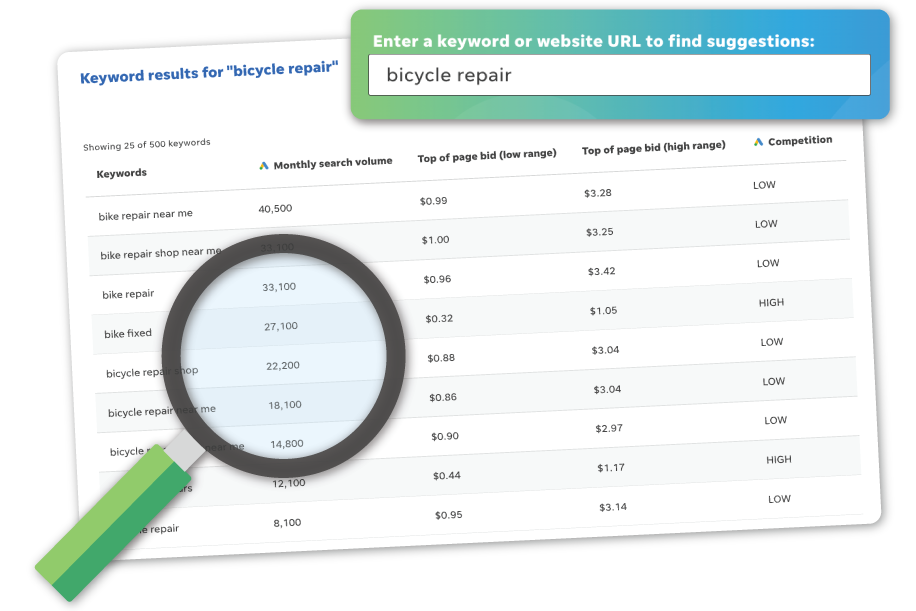
6 Ways to Use ChatGPT for Small Business Marketing (+6 Ways NOT to Use It)
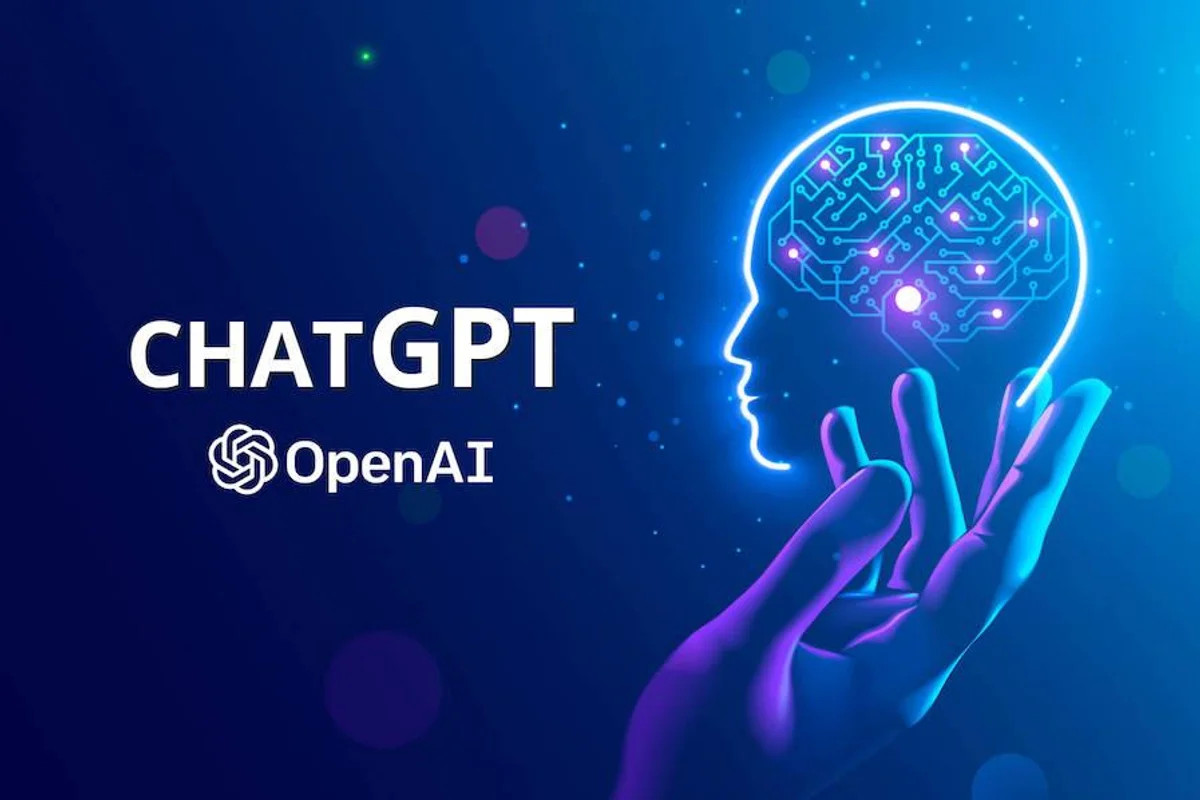
Open AL Service for small Business - Blog
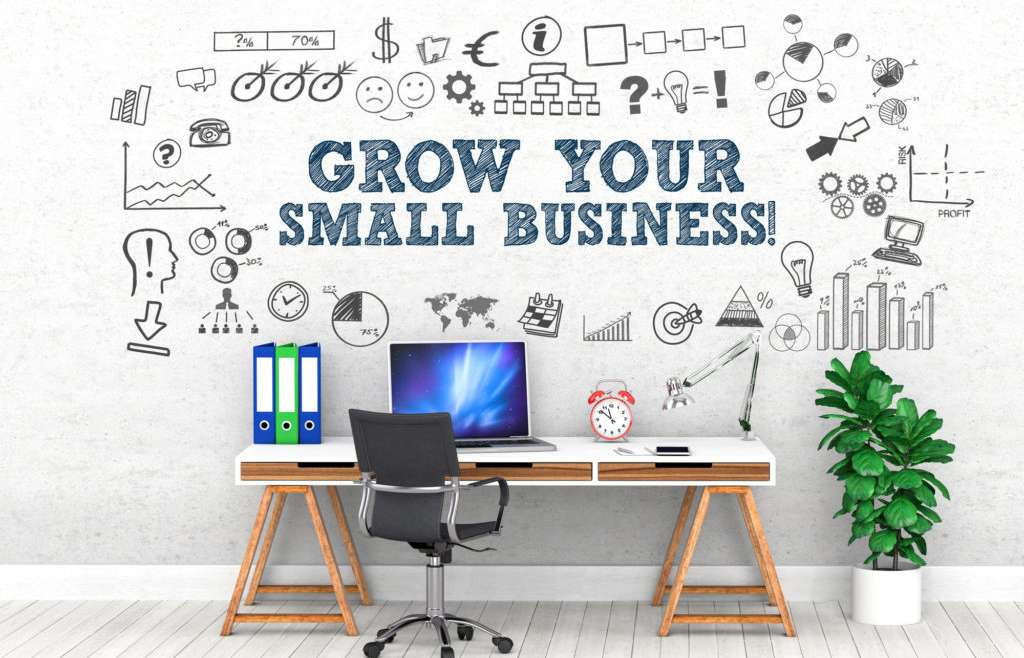
Do Small Businesses Need Digital Marketing? - Blog

Important elements of any website that you need to pay attention to - Blog
When you subscribe to the blog, we will send you an e-mail when there are new updates on the site so you wouldn't miss them.


